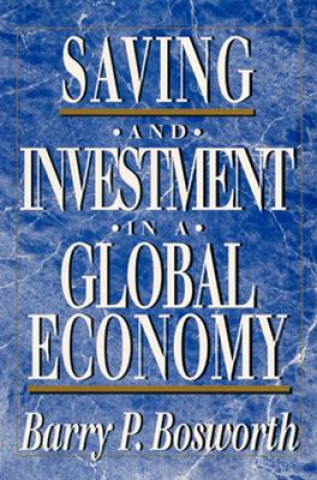
Dostawa
Doradca ds. zakupów
16 127 528 książek w 175 językach







Pokaż wszystkie języki (175)





Jednak się nie przyda? Nic nie szkodzi! U nas możesz zwrócić towar do 30 dni
 Bon prezentowy
O dowolnej wartości
Bon prezentowy
O dowolnej wartości
Bon prezentowy to zawsze dobry pomysł. Obdarowany może za bon prezentowy wybrać cokolwiek z naszej oferty.
Saving and Investment in a Global Economy
 Angielski
Angielski
 80 b
80 b
30 dni na zwrot towaru
Mogłoby Cię także zainteresować


The emergence of large trade imbalances among the industrial countries during the 1980s - particularly the massive deficit of the United States and the surpluses of Germany and Japan - has led to growing disenchantment with the international economic system. But while many critics point to unfair trade practices as the cause of these imbalances, Barry Bosworth contends that this emphasis is misplaced. Instead, he argues, the trade disparities are not the result of external infractions, but rather a reflection of domestic failures. The United States, for example, with its large government budget deficit and low rate of private saving, must borrow abroad to finance its investment. Similarly, trade surpluses of countries such as Japan are indicative of a surplus of national saving over investment needs, rather than restrictive trade practices. Bosworth explains that the existence of large trade imbalances became possible in the 1980s because of the development of an international capital market that greatly reduced the barriers to borrowing and lending across national borders. The result is an international system in which national economies are closely linked through international capital markets as well as trade in goods and services. Bosworth uses data from the major industrial countries to highlight the process by which changes in domestic rates of saving and investment lead to changes in interest rates, exchange rates, and trade balances. He first examines the reasons for the decline in rates of national saving and investment that have been evident throughout the industrialized world. One conclusion is that large and sustained trade imbalances are likely to be a common feature of the international economy in the future. He then focuses on the role of exchange rates in the process of adjusting to trade imbalances, and considers whether the wide fluctuations in exchange rates that have occurred are a cause of concern or simply an integral part of the international adjustment ot the divergent patterns of national saving and investment.
Informacje o książce
 Angielski
Angielski




 Jak kupować
Jak kupować













